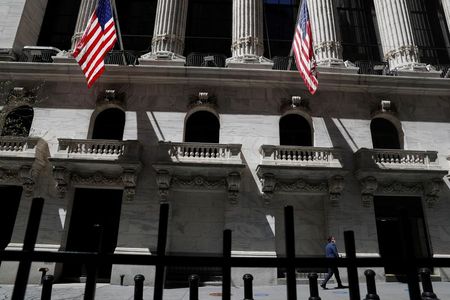Retail investors spooked as equity sell-off continues

Retail investors have shunned US stocks in the past week as a bargain-hunting frenzy began to falter amid a continuing slide in equity markets.
US-listed equities have recorded their weakest week of retail inflows since a Biden election rally and the 2020 covid sell-off, according to data compiled by retail investment firm Vanda.
It comes after investors piled into flagging equities amid the market turmoil sparked by Russia’s invasion of Ukraine, with retail investors snapping up a record $7.1bn of US securities in the week to 9th March.
Analysts at Vanda said the continued plunge in markets had seen retail investors finally spooked.
“As we have argued in prior reports, the longer this sell-off extends, the likelier buying fatigue would intensify – which is exemplified during sharp up-days given retail’s short-term contrarian bias,” said Marco Iachini, senior vice president at Vanda.
“Retail’s buying apathy is currently exacerbated as aggregate portfolio losses are affecting investors’ willingness to raise the risk exposure further. Only a market bottom and a sustained rebound in momentum would flip this dynamic.”
But they warned that the dip in inflows did not yet represent a full-scale capitulation as investors hold their positions.
“As was the case in recent years, we think we will need to see retail net selling on a down day (or days) to call for a proper capitulation and the probable bottom of the current sell-off.”
Equity markets have been sent into a spin by the Russian invasion of Ukraine and slapping of sanctions on Russian firms.
Fund managers have similarly began to shun equities amid the volatility, with a survey from Bank of America finding yesterday that equity allocation had fallen to an all time low as the economic outlook falls to its lowest point since 2008.
Funds that trade with some of the biggest banks on Wall Street said they were backing out of US stocks and have slashed their long and short stock positions as they look to safeguard against further plunges, the FT reported.